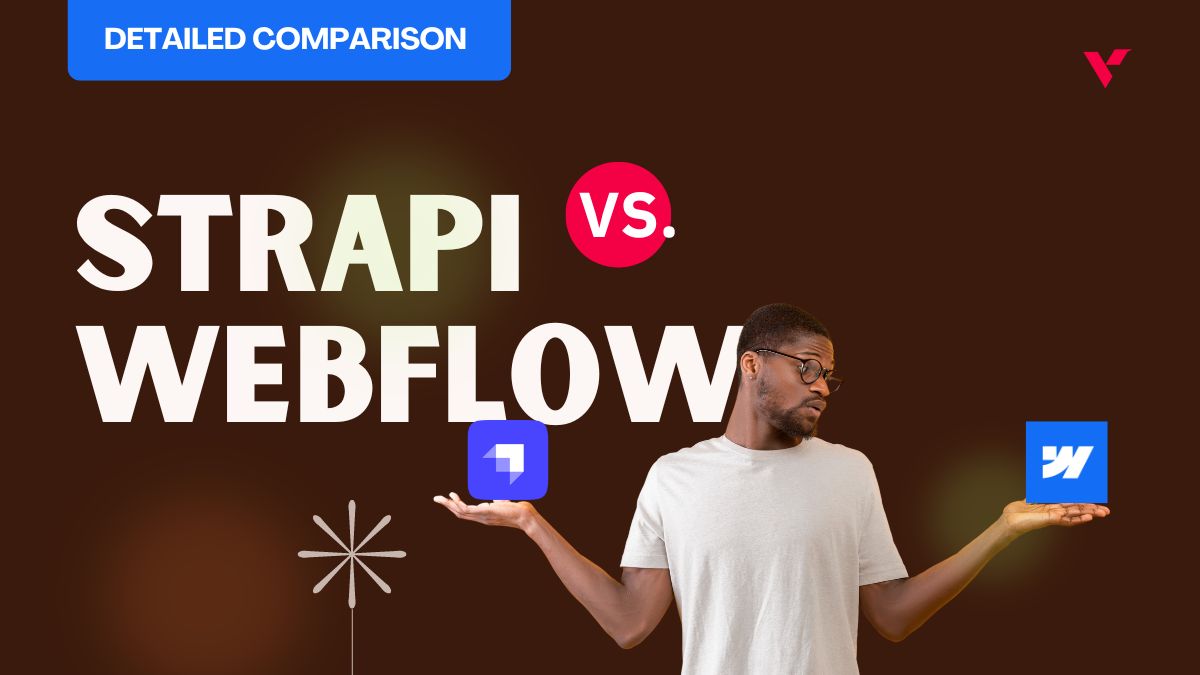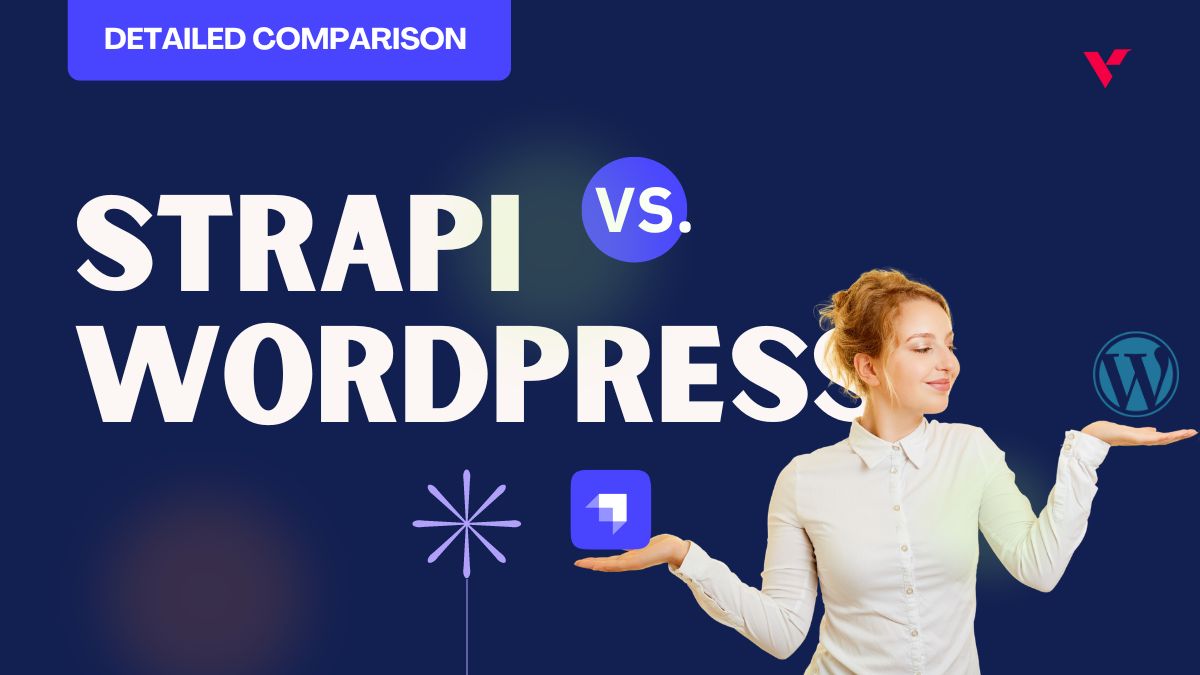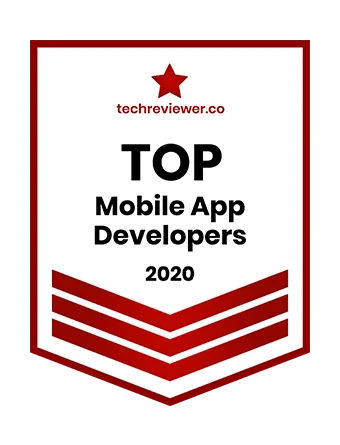Popular Tools by VOCSO
The choice of building mobile apps depends on business requirements and user expectations. While native and web-based apps have several benefits, hybrid app development has gained popularity. It is because of its adaptability across multiple platforms to build mobile applications that provide consistent performance. Besides being cost-effective, hybrid apps make it faster to reserve a spot in the app store.
Through this blog, let’s explore some essential aspects of hybrid app development to help you decide if it’s the right approach for your business. But first, let’s define what hybrid app development is and what its advantages are.
Table of Contents
What is Hybrid app development?
Hybrid app development is building an app with a single project using a framework that can target all needed platforms such as Android, Windows, iOS, etc.
Hybrid software is very appealing because developers can go for custom mobile application development by creating a single code base that can be used on all platforms. Except for some aspects of the app (the main one is the UI that users expect to be tailored to their platform of choice), developers only have to write the code once, and can be used when developing the app on any other target platform.
Two undeniable facts are driving the demand for hybrid apps:
- They’re easier to make as compared to native applications.
- Their source code can be utilized to expand the reach of businesses on multiple platforms, including the web.
Hybrid mobile app development is enticing for businesses specifically, as they can get in on the mobile market on all major platforms.
A custom hybrid mobile app is an app that is developed specifically for a business or organization. This type of app can be used to improve customer service, increase sales, or even just promote brand awareness. There are many benefits of custom mobile application development for a business, and these benefits can be seen in both the short and long term.
What are Hybrid Apps?
It is a software application that combines elements of both web applications and native apps. They are basically web applications in a native app environment that connect with the mobile platform capabilities installed in the app.
How Do Hybrid Apps Work?
Hybrid apps are web apps that have been in a native app shell. Once downloaded from an app store and installed, the shell can connect to whatever capabilities the mobile platform provides by a browser that’s inserted in the app. The browser and its plug-ins run on the backend and are invisible to the end user.
Work similarly to Web apps, but are downloaded to the device like native apps. Also Similar to Web apps, hybrid apps are written in HTML5, CSS, and JavaScript.
The device’s browser engine is used for JavaScript, HTML, and native APIs to access device-specific hardware.
Even though a hybrid app shares similar navigation elements as a Web app, whether the application can work offline depends on its functionalities. An application can be made to function offline if it does not need support from a database.
How Hybrid Apps are different from native
Hybrid development enables you to create your application once and deploy it across different platforms including Android, iOS, or Windows to save time for developers working on multiple projects who designed apps specifically for each platform.
Developing an app with a hybrid mindset is easier as the frameworks get updated regularly with new features, allowing developers to take advantage of specific features of certain platforms while maintaining a familiar development environment.
But this has the side effect of making the codebase larger, as it needs to account for all the different devices and OS versions that the app targets.
While the native app development is designed for one platform and requires more time to develop. However, native apps perform better than hybrids as they have been specifically optimized for their target platform.
It comes down to your specific requirements and what you want your application to do. If you only need to develop for a single platform or performance is a key factor for your app, you’ll want to develop a hybrid native app.
But suppose you want to develop several platforms at once. In that case, if you’re looking for a cost-effective approach to your project, and you’re not concerned about having a new feature that doesn’t perform on one platform than the other, then hybrid app development might be the right option for you.
Best Hybrid App Frameworks
Here’s the list of the best hybrid mobile app framework available, each having its strength and weaknesses, so you have to choose the one that suits best for your project.
1. React Native:
React Native is a cross-platform mobile app development framework based on React, first released by Facebook in 2015. It is an open-source JavaScript framework that enables you to build multi-platform user interface components with JSX that later is linked to native code and converted to Android and iOS native views.
The views are native components that communicate with logic written in JavaScript with a bridge.
Apps built with React Native:
- Instagram: Social Connectivity App
- Facebook: Social Media App
- Skype: Video calling-based app
2. Flutter
Developed by Google in 2017, Flutter is an open-source framework that uses a programming language of its design named Dart.
It allows developers to use one codebase to build an application for both Android and iOS devices. The framework is popular since its launch because of the involvement of Google and its versatility.
It can deliver apps to the web, mobile, desktop platforms, and embedded devices.
Due to the competitive speed of development and ability to use a wide array of widgets, Flutter has seen mass adoption from developers, even though it is one of the more recent frameworks from the list.
Apps built with Flutter:
- Hamilton: Music-based app
- Pairing: Dating-based app
- Google Ads: Ad campaigns management app
3. Apache Cordova
Apache Cordova is an open-source cross-platform mobile development framework, that allows the creation of mobile apps using standard web technologies. Cordova hybrid apps that are developed with Apache Cordova run in the Web View within the native application wrapper.
Apps built with Apache Cordova:
- Pacifica: Stress and Anxiety Relief
- FanReact: Sports Fans Social App
- SparkChess: Chess Playing App
4. Ionic
Ionic is a popular framework that uses HTML, CSS, and JavaScript to build hybrid applications. It is easier to use, more powerful, and has built-in support for AngularJS, making it even more attractive for front-end developers familiar with the framework.
Apps built with Ionic:
- Sworkit: Fitness App
- JustWatch: Streaming Engine
- McDonald’s Turkiye: Food Delivery App
5. Xamarin
Created by Microsoft, Xamarin is a framework used for developing mobile apps built on top of their .NET framework and C# programming language. You can build apps and access native APIs for Android, Windows, and iOS.
At present, it is currently undergoing reform and soon will be consolidated into the .NET platform, then becoming the .NET Multi-platform App UI.
Apps built with Xamarin:
- Storyo: Video Story Creator
- Just Giving: Online Fundraising Platform
- The World Bank: Survey Conducting App
6. Unity
Unity is considered a hybrid app development framework, but its main use is to develop games and other graphically demanding other forms of entertainment (such as VR and AR experiences). Unity uses C# programming languages.
It is used to develop web and mobile apps, but they won’t have a native feel as easy as the other options in the list. But if you’re looking to develop an entertainment app, it’s one of the best among others.
Unity is also the most flexible and can target Windows, Mac, Linux, iOS, Android, Web (by WebGL), popular Extended Reality kits (Microsoft’s HoloLens, Oculus, and PlayStation VR), and consoles (such as Xbox, PlayStation, and Nintendo Switch).
Apps built using Unity:
- Crossy Road: Arcade video game app
- Hearthstone: Digital collectible card game app
- Alto’s Adventure: Endless runner snowboarding video game app
7. Intel XDK
XDK is an HTML 5 hybrid app development work that lets developers use web technologies to develop cross-platform apps for iOS, Android, and Windows. Cross-platform capabilities combined with a simple codebase make XDK people’s top choice.
Apps built with Intel XDK:
- Ninja Legacy: WP-based App
- Second Fiction: Game-based App
8. Appcelerator Titanium
Titanium is a framework that takes JavaScript source code and converts it into a native application using WebKit. It is famous for developing apps for various platforms. With more than 20 million downloads since 2007 (its first release), Appcelerator Titanium is one of the most used hybrid app development frameworks.
Apps using Appcelerator Titanium:
- PayPal: Payment Sharing App
- Paint: Drawing-based App
- InMobi: Money-making Ad-based App
9. Jquery Mobile
Jquery is used for cross-platform compatibility and optimized for touchscreens that make the app look like a native app. The framework has media queries that make it easier to adapt mobile apps to various screen resolutions and sizes.
Apps built with Jquery Mobile:
- Backbone: Demo App
- Contact-based application: Demo App
10. Solar 2D
Solar 2D is one of the renowned hybrid app development frameworks that work with native Android and native iOS app development languages. The strength of Solar 2D lies in its use of simple and standard Lua code to create native applications while also providing features available in hybrid mobile applications.
Apps built with Solar 2D:
- Tiny Boxes: Puzzle-based gaming app
- I Love Hue: Color-based gaming app
- Scale: Arcade Game app
To find out which android hybrid app framework is best for you, you need to identify your skill set, experience, and project requirements.
Advantages of Hybrid app development
There are several advantages of hybrid app development. One of the main benefits is using a mixture of technologies to create the app that gives you more flexibility.
With hybrid application development, you are not limited to one technology or platform, so you can find the best tools for the job.
Further, with the use of a hybrid approach, the app works on various devices that increase the reach of your target audience. This is crucial if you want to target an audience who is not using the latest and greatest technology.
Moreover, hybrid apps are generally faster and more responsive than traditional web apps, providing a better user experience.
That said, here are seven other benefits of hybrid app development. It includes:
Reduced Development Costs:
It is no secret that developing a mobile app can be expensive. The cost of development can be one of the biggest barriers to entry for many businesses and entrepreneurs.
There are a number of ways to reduce the cost of developing a mobile app.
Developing a hybrid mobile app is cost-effective and gets the job done quicker than any other web or native mobile application. In the competitive world where the time to market has turned more significant than round the clock, cost efficiency plays an important role in assisting enterprises to create and get their product to the market in less time.
With the assistance of a set of libraries and multiple development frameworks such as PhoneGap and Xamarin. Hybrid application developers can speed up the development procedure and submit the application to various app stores to save time, effort, and overall development costs.
Enhanced UI/UX:
A reliable user experience across multiple mobile platforms is the main reason behind the hybrid app’s recognition. Users anticipate the application to be right away responsive on multiple devices and set a glitch-free experience.
While hybrid apps exhibit data faster with changing device screen configurations, it also solves the problem of random data streaming abilities. The hybrid app UI helps to load content and graphics quickly. Hybrid apps adapt to different device screens for quick data display and seamless data streaming. Further, the excellent UI experience improves the chances for approval of applications at the app store.
Effortless Integrations:
Hybrid applications drive the inner programming solution of the device through an overlay that assists to deliver better synchronization with other well-suited applications. This decreases the integration problems for the hybrid developer.
Moreover, the hybrid application works smoothly with the native apps of the device using the camera, messaging, and GPS for a better user experience.
Useful Data and Information Support:
Hybrid app store the API of the device to save offline data and information that helps to load the app rapidly. It stores information that users can access during poor or no internet connectivity.
As most of the users want to trim down their mobile data usage and have nonstop access to application data, a hybrid app is proficient in offering just that offline app convenience without performance drop-down. It is another reason why hybrid mobile apps are the most excellent when assessed with native mobile applications.
Simple to maintain and sustain:
A hybrid app is intended to use all the accessible features on hand in the mobile device. It bypasses versioning and makes app upholding as trouble-free as updating a website page on a real-time basis. This level of suppleness further enables the scalability requirements of the business.
Cross-platform compatibility:
Hybrid applications are designed to run on multiple platforms at once. They don’t have the same limitations as apps built especially for one platform. It makes them ideal for businesses that want their presence to reach all their target audiences.
Enhanced Performance:
Hybrid apps offer high performance just like native apps. In some cases, they are even faster than responsive and progressive apps. The reason is no dependency on network communication. Further, even apps with many users exhibit better speed on all devices. It has been proven their performance standards with brands like LinkedIn and Twitter.
Offline Availability:
Mobile applications suffer from limitations arising because of a lack of offline support. It is a challenge for companies that provide to customers from rural areas where internet connectivity is poor. The offline accessibility feature of hybrid apps helps overcome this challenge. Therefore, the end-users can continuously access the app’s data without performance glitches.
Wider Market Research:
Hybrid apps are perfect for targeting different platforms with one solution. In this competitive marketplace, it becomes a cost-effective and lucrative option to reach out to numerous users using multiple mobile platforms.
Key Features of Hybrid app development
- Functions whether the device is connected or not.
- Integration with the file system of mobile devices.
- Integration with web-based services.
- An embedded browser to improve access to dynamic online content.
- It supports portability – one source code and can be utilized on multiple platforms.
- You can manage some software and hardware features by using diverse plugins.
- Cost-effective mobile application development for all stakeholder types.
- A quick way to build mobile applications with multiple functionalities and features.
Examples of Hybrid application development
Let’s discuss some top-notch examples of hybrid apps that have taken businesses to the next level and have created excitement in the market, redefining the performance of hybrid applications.
1. Evernote:
Evernote is one of the popular productivity apps. The app has a rich design and strong performance that stands it apart from other apps in this segment. The multi-device sync capacity of this app makes it unique and seamless. Evernote gives an entirely fluent and native-like experience that makes it the most appealing among users.
Features of Evernote:
- Uses a camera to scan and capture things.
- Automatically sync all-important notes.
- Plan, discuss and share your memos and notes with the ones who helped you in performing the work.
- Create a personal to-do list that keeps your day productive and organized.
2. Amazon App Store:
Amazon app store is powered by HTML5 and redefines the users’ experience while accessing it. It has an astonishing user interface that makes it stand out among users and makes the app extremely appealing.
Features of Amazon App Store:
- The checkout process is simple and fast.
- Reviews of the app to ensure users receive quality products.
- Reviews and feedback by other users.
- Worldwide distribution.
3. Instagram:
Instagram is one of the leading social media platforms that observes user engagement every day. It’s the best platform to share videos and images. The app is powered by HTML5 and can maintain offline data and rich media – the best example is its signature quick videos.
Features of Instagram:
- Add videos and pictures to create captivating stories with creative tools.
- Get familiar with people you love by joining the vast community.
- Direct messages to friends instantly.
- Post your images and videos to the feed on your profile.
- Watch short 30-60 seconds videos as reels.
4. Uber:
Uber, a taxi-booking application, is a great hybrid app example with a simple and intuitive user interface integrated with easy navigation. The app performs fast on multiple devices, providing dynamic features to both Android and iOS users.
Features of Uber:
- Access to the user’s location to assist drivers in picking up the customer’s locations efficiently.
- Driver’s image is visible to riders.
- Multiple payment methods – credit card, digital wallet, and debit card.
- Users can view vehicle details and track drivers via Google Maps.
5. Gmail:
Another great example of the biggest hybrid app examples is Gmail. Google uses the potential of HTML5 in restricting the Gmail app to redefine user experience with excellent features and functionalities, etc. Google has joined both native elements and HTML into the Gmail application to make it more significant with a seamless performance.
Features of Gmail:
- Includes an organized inbox to characterize promotional, updates, and social messages.
- Blocks any spam mail before it reaches your inbox.
- Has 15 GB of free data storage to save numerous messages.
- Provides multiple user account support.
6. Twitter:
Twitter, is another popular social media platform after Instagram and one of the best hybrid app examples. It has a large volume of traffic and sorts out all setbacks and delays of a hybrid app that is discussed majorly for performance issues.
It has transformed the perception of users regarding hybrid applications and raised the demand for these apps among businesses.
7. Remote POS:
Remote POS helps users to control and manage an entire restaurant. It can work offline but requires the internet to print the generated bill. The application has a larger storage capacity and has both local and cloud data storage. It works excellently and is efficient for handling staff and managing orders.
Features:
- Customer mobile application
- Cloud-based application
- Users get notified about promotional offers and deals regularly.
- Helps businesses build customer loyalty.
- The app facilitates easy and fast transactions.
Conclusion
Because of hybrid app development, you can now use a mobile app running on different operating systems. By offering your app on multiple platforms, you can increase the reach of your brand.
Besides the convenience of working on any platform, it is easier to develop and download hybrid apps. As they integrate native elements, they provide a native-like user experience.
That’s the reason hybrid software is more popular than ever. It allows the brand to launch one single application across various mobile devices and easily reach the target audience while saving money and time.
And that’s why there are many hybrid app developers to choose from if you want to take the hybrid route and create hybrid apps for your business.
















